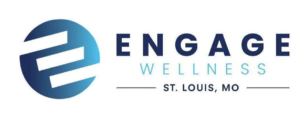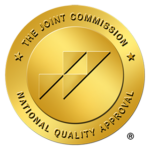Home / What We Treat /
Home / What We Treat / Cocaine Rehab in St. Louis
Cocaine is a powerful stimulant drug that’s used illicitly to produce euphoria. Because of its intense and short-lived high, cocaine is often binged, rapidly leading to tolerance, dependence, and addiction that can be hard to overcome.
What Is Cocaine?
Cocaine is a potent central nervous system stimulant that’s derived from the leaves of the coca plant in South America. In its pure form, cocaine is a fine, white, crystalline powder that may be snorted, though the powder may also be dissolved to be injected into a vein. The powder may also be processed into crack cocaine, which can be smoked.
Cocaine works by blocking the reuptake of dopamine in the brain, leading to an intense euphoria that fades quickly – typically between 15 and 30 minutes.[1] This rapidly fading high may cause people to binge it, quickly building tolerance and dependence.
Cocaine is currently classified as a Schedule II controlled substance, but it was once used as a local anesthetic in conventional medicine. There are still extremely limited medical uses for cocaine, but most cocaine use is illicit.
In the short term, cocaine can cause euphoria, an increased heart rate, high blood pressure, dilated pupils, decreased appetite, and high energy. There are risks with cocaine use as well, including possible heart attack, stroke, seizure, gastrointestinal damage, and respiratory failure. Some people experience severe anxiety, paranoia, or possible psychosis from cocaine use.[2]
Cocaine Addiction and Abuse
According to research, about 41 million people aged 18 years or older reported lifetime use of cocaine, and 5.4 million people reported having used cocaine in 2019.[3] Cocaine addiction can happen quickly when the brain is repeatedly exposed to the substance. Using cocaine regularly develops tolerance, meaning more and more of the drug is necessary to get the same effects. Over time, dependence develops, which means the body has become used to the presence of the drug and needs it to function properly.
Cocaine addiction is a cocaine use disorder, which is characterized by a persistent need to use cocaine despite the problems it causes.[4] This may include using the drug more than intended, taking higher doses than intended, spending a lot of time using or recovering from cocaine, or continuing to use cocaine despite problems in relationships, work, or health.
There are some common signs of cocaine abuse, such as increased energy followed by crashes, sleep problems, dilated pupils, dramatic mood swings, paranoia, irritability, and secretive behavior. People who snort cocaine may develop nasal problems from damage to their nose and sinuses.

Dangers of Long-Term Cocaine Use
Cocaine is sometimes seen as a harmless party drug, but it carries serious long-term risks for nearly every organ system in the body. The cardiovascular system can be damaged by regular cocaine use, leading to cardiac complications like disturbances in the heart rhythm and heart attacks, inflammation of the heart muscle, and aortic ruptures.[5] Stroke and dangerously high blood pressure are also common.
People who abuse cocaine also become malnourished because they neglect healthy eating habits while bingeing. With less blood flow to the gastrointestinal tract, ulcers and tears become more common. Cocaine abuse also harms the liver and kidneys, possibly leading to organ failure.[6]
Cocaine can have devastating effects on the brain and mental health as well. Chronic use can impair cognitive function, causing problems with impulse inhibition, memory, attention, decision-making, and performing motor tasks.[7]
Each method of cocaine use can have adverse effects associated with it, including damage to the nasal cavity, nosebleeds, loss of smell, and a chronic runny nose from snorting cocaine. Smoking crack can cause lung damage (crack lung) and breathing problems like asthma. Injecting cocaine increases the risk of contracting infectious diseases like HIV and hepatitis C.
Cocaine Overdose
Overdoses are possible with cocaine and may be fatal. In addition to the potential for toxicity with the drug itself, cocaine is frequently adulterated with other substances, including the opioid fentanyl, which may increase the risk of overdose.
The symptoms of a cocaine overdose can vary but often include overheating, profuse sweating, nausea, vomiting, rapid breathing, abnormal heart rhythm, seizures, tremors, confusion, severe anxiety or panic, irritability and mood swings, and hallucinations.[8]
Without medical intervention, cocaine overdose can have catastrophic consequences like heart attack, stroke, arrhythmia, seizures, blood clots affecting major organ systems, psychotic episodes, or sudden death.[9] If cocaine is mixed with other substances, such as alcohol or opioids, there can be more intense effects and a higher risk of fatal overdose.

Cocaine Addiction Treatment in Saint Louis
Cocaine’s intense effects can make it extremely challenging to overcome addiction. At Engage Wellness, we take a comprehensive approach to cocaine addiction treatment to address the physical aspects of substance use disorder, but also the emotional and psychological contributing factors.
Cocaine addiction treatment may begin with detox placement to coordinate medically supervised detox. While cocaine withdrawal symptoms aren’t usually life-threatening, they can be extremely intense with a high risk of relapse. Medical detox provides support and supervision to build a strong foundation for successful addiction treatment.
Once detox is complete, it’s time to transition into a comprehensive cocaine addiction treatment program. Depending on your needs, this may be an intensive outpatient program (IOP) for cocaine addiction, which provides rigorous therapy multiple times a week without requiring a residential or inpatient treatment. Outpatient treatment is also available for more flexible therapy sessions that allow you to keep up with your daily responsibilities alongside treatment.
Both IOP and outpatient programs rely on a range of therapies based on your individual treatment plan, including:
01
This type of therapy focuses on the family as a unit to address past hurt and conflict, learn healthy communication, and develop a supportive environment for recovery.
02
This type of therapy focuses on a group of peers who share experiences and develop a support system for recovery.
03
12-Step programs are based on the principles of Alcoholics Anonymous (AA) and Narcotics Anonymous (NA) to assist recovery with self-reflection, accountability, and community.
04
This type of behavioral therapy helps to identify the unhealthy thought patterns and behaviors that contribute to substance use and replace them with healthier ones.
05
This behavioral therapy uses principles from CBT with additional work in emotional regulation and mindfulness to combat substance use.
06
This type of therapy inspires internal motivation by resolving any ambivalent feelings toward drug addiction and recovery.
07
EMDR is a transformative treatment for people who have experienced trauma that may contribute to their drug abuse or addiction.
08
Relapse prevention programs rely on techniques to identify triggers, manage stressful experiences, and maintain sobriety.
09
Holistic therapy treats the whole person with therapies like meditation, mindfulness, and acupuncture.
10
Our veterans program focuses on the challenges veterans face when reintegrating into civilian life after service or deployment, including substance use, dual diagnosis, trauma, and post-traumatic stress disorder (PTSD).



